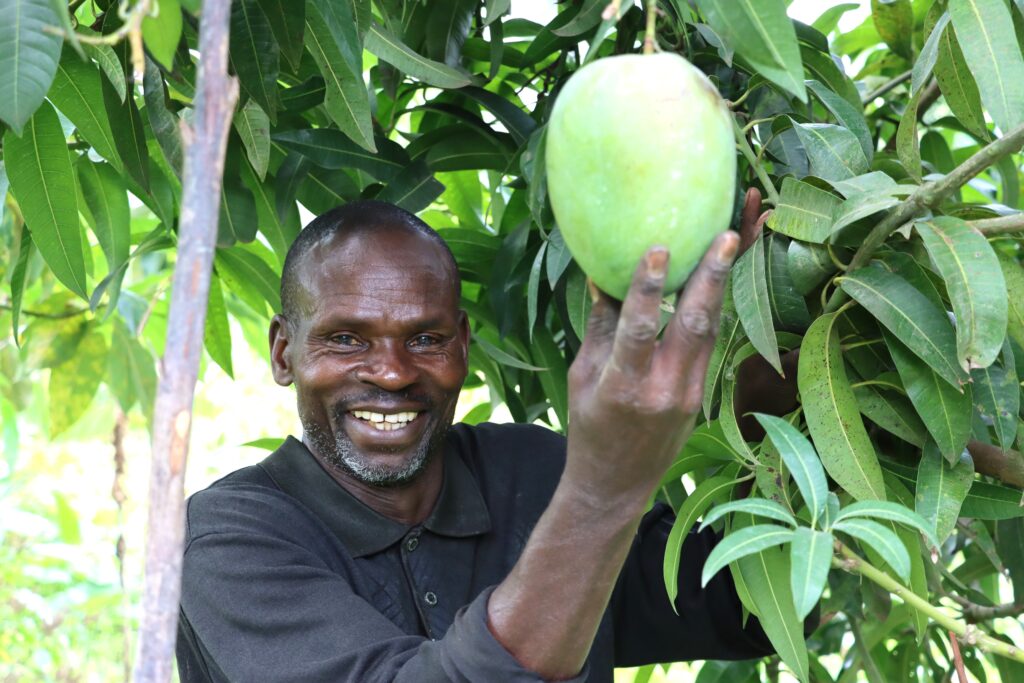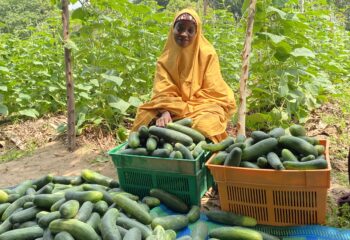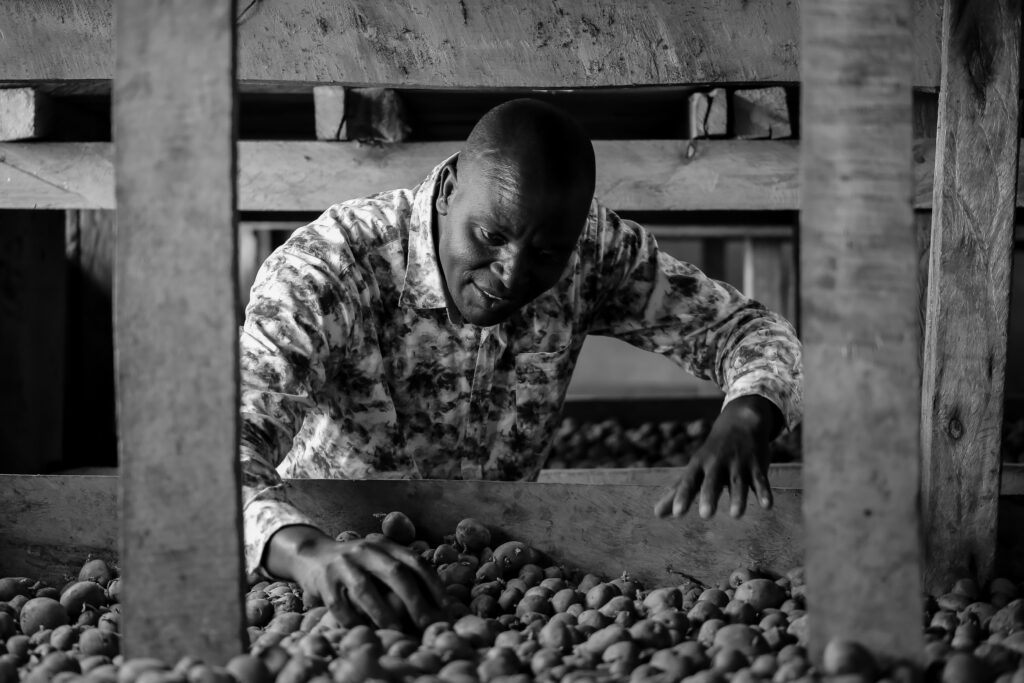
Born in Uganda’s Benet community in the highlands where agriculture is forbidden, Moses Kiptala and his neighbors in the community relocated to the lowlands and started growing traditional Rwangume and Kinigi potato varieties in 1984 to feed their families and generate income.
While demand for their produce was high, yields remained low. From 100 kg of potato seed planted, they harvested only 200 kg. Their customers sought diverse potato varieties, but the farmers only had these two to offer.
To help with these issues and strengthen their positions as potato farmers, Moses and eight more farmers (five women and four men) formed the Mengya Integrated Farmers Cooperative Society (MIFCOS) in 2006, formally registering with Benet Sub-county and Kween District Local Government in 2010.
“We are not just feeding our families and earning income; we are contributing to food production and security far beyond the Elgon region.”
Moses Kiptala
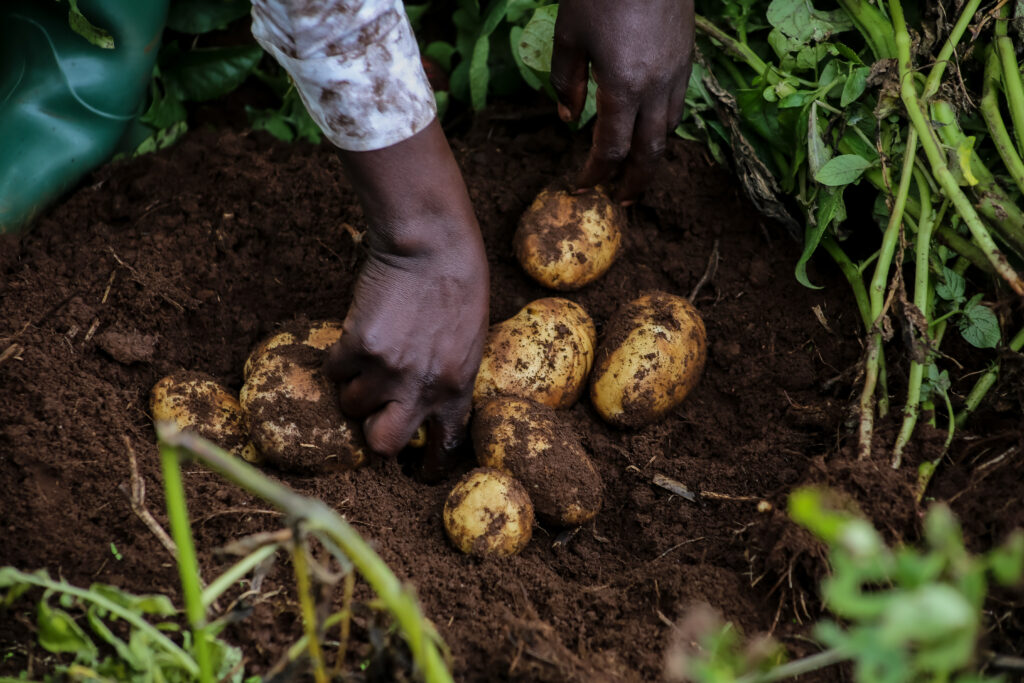
A decade later, it had evolved into a producer and marketing cooperative registered under the Ministry of Trade, Industry and Cooperatives. “Today, we are 298 members strong, and still growing,” Moses proudly declared. The cooperative comprises 144 men and 154 women.
Moses, now Chairperson of the MIFCOS Supervisory Committee, explained that before the Building Resilience and Inclusive Growth of Highland farming systems for rural Transformation (BRIGHT) project’s intervention, members of MIFCOS had continued to struggle with low harvests and limited income, despite their best efforts.
Poor agronomic practices, limited access to output markets and quality inputs, and insufficient capital for investment in potato farming had hindered their progress.
The BRIGHT project not only empowered MIFCOS through training on improved agronomic skills, but also linked the cooperative to the Kachwekano Zonal Agricultural Research and Development Institute (KaZARDI), enabling access to high-yielding Dutch potato varieties such as Sagitta, Taurus, Panamera, Markies, and El Mundo, which have boosted production and incomes.
Moses reflected on the transformation, “We now practice better crop spacing, weeding, pest and disease control, water retention using trenches and grass bunds, and proper post-harvest handling. These practices have increased our yields.”
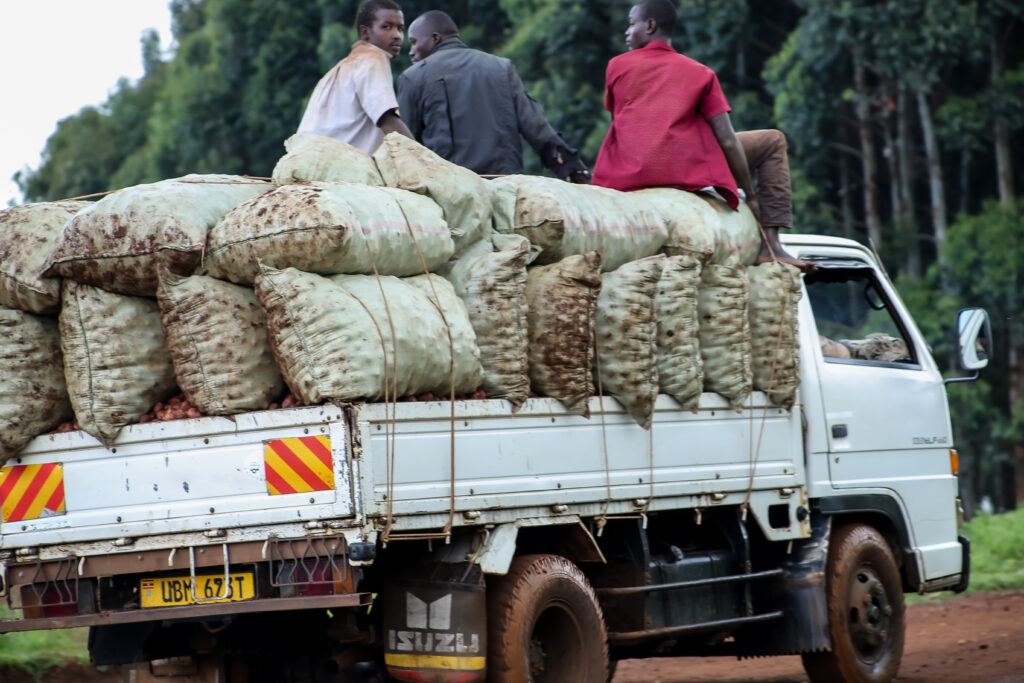
Today, MIFCOS produces over 10,040 tons of ware potato annually (270 tons of Taurus and 9,770 tons of Rwangume), earning over 8.2 billion Uganda shillings (UGX) (approximately U.S. $2.2 million), which is channeled back to smallholder farmers. They also multiply thousands of potato seeds each year in their 8 x 15-meter screenhouse, supplying potato seed to farmers across the Mount Elgon region.
“Our income has increased significantly, from just UGX 400 (approximately U.S. $0.11) per kg of potatoes to between UGX 800 and 1,500 (approximately U.S. $0.22 to $0.42) per kg for Rwangume and Dutch varieties, respectively,” Moses shared.
To preserve the potato quality before sale, MIFCOS stores its produce in three diffused light storage facilities with a combined capacity of 257,500 kg.
The cooperative’s increased potato production not only raises members’ incomes, but also strengthens food security in Uganda and beyond.
“We are not just feeding our families and earning income; we are contributing to food production and security far beyond the Elgon region,” Moses said.
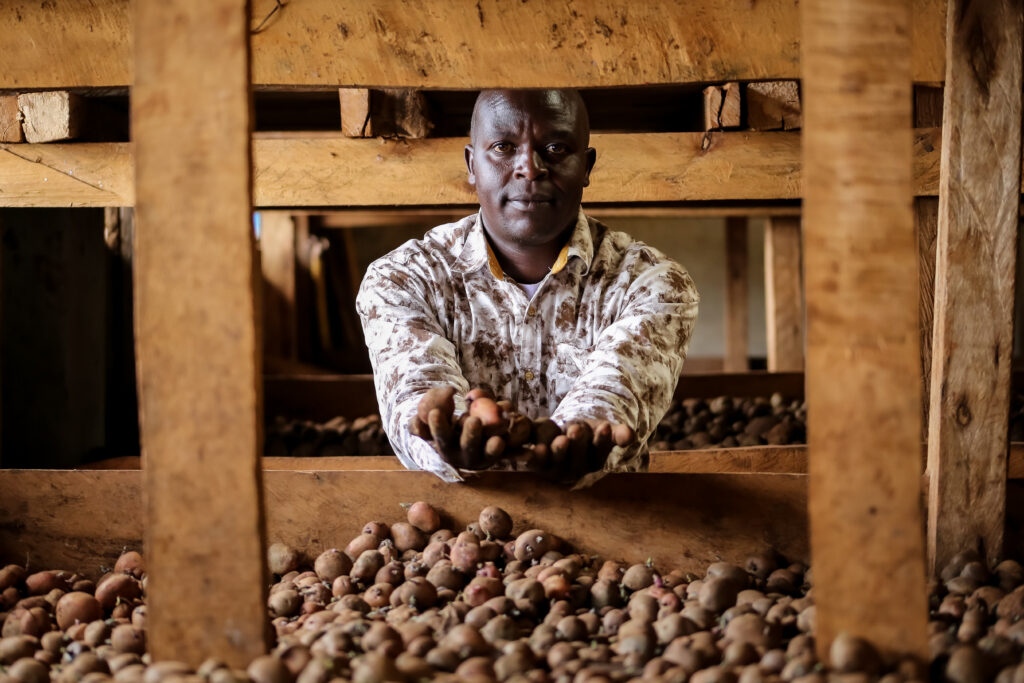
To expand their agricultural investments, the BRIGHT project facilitated a partnership between MIFCOS and Pearl Capital Partners, through which MIFCOS secured a loan of UGX 100 million (approximately U.S. $27,392) in June 2025.
“This loan has been a game changer,” remarked Moses. “We have invested UGX 53 million (approximately U.S. $14,517.87) in 20,000 kg of Taurus potato seed, from which we expect a harvest of 200,000 kg, valued at UGX 300 million (approximately U.S. $82,176.60).”
He added, “We also invested UGX 36 million (approximately U.S. $9,861.19) in an agro-input shop, partnering with ETG Agri Inputs and Chemicals, Grainpulse Limited, and Balton Uganda to supply quality inputs. This initiative brings essential agro-inputs closer to our communities, while generating income.”
The remaining UGX 11 million (approximately U.S. $3,013.14) was channeled into the MIFCOS Village Savings and Loan Association (VSLA), enabling members to access credit for investment and personal needs with repayment through potato produce to ease the burden of cash payment.
To secure sustainable markets, MIFCOS formalized partnerships with agro-input suppliers and offtakers, such as ETG Agri Inputs and Chemicals, Grainpulse Limited, Kilimo Kisasa Limited, and Psalms Food Industries Limited, ensuring reliable input and output supply and good prices. MIFCOS has also expanded its reach to individual offtakers across Uganda through exhibitions facilitated by the BRIGHT project.
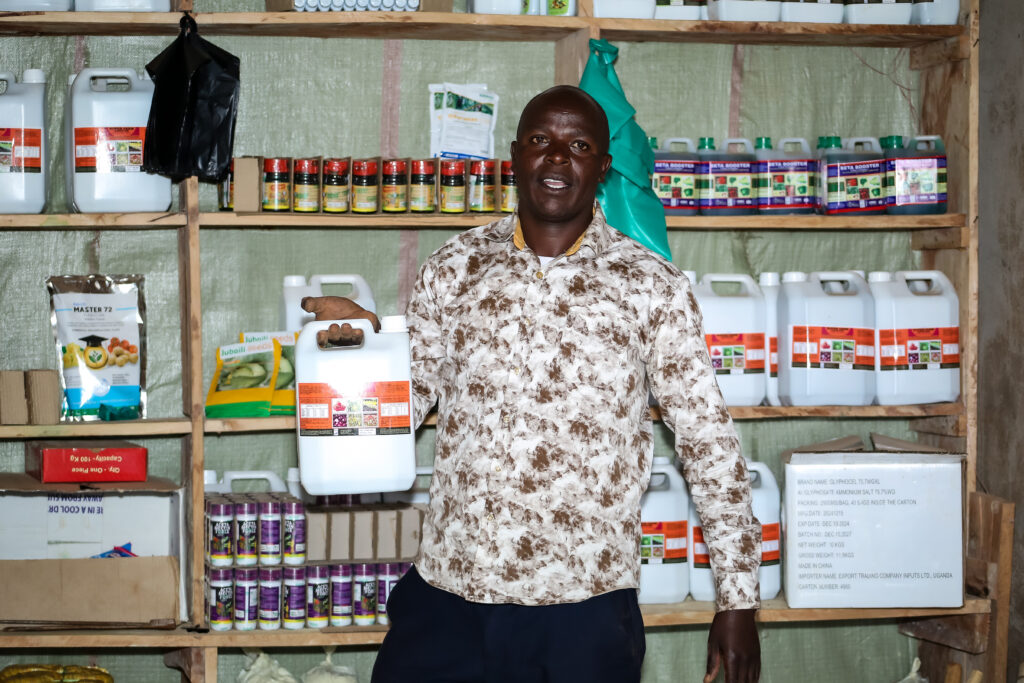
Moses summarized the benefits of MIFCOS’s improvement with BRIGHT’s interventions and shared, “Our members now earn more income, live in permanent homes, send their children to private schools, and are investing more in agricultural enterprises.”
Looking ahead, MIFCOS plans to grow its membership to 400 by 2027, and to increase annual potato production to 20,000 tons, expand screen house capacity, and acquire 1,000 additional acres for cultivation by 2028 – further strengthening the members’ livelihoods and contributing to widespread food security.
The BRIGHT project is empowering 15 cooperatives in Uganda through improved agronomic practices, market access, and affordable finance through private sector linkages.
To date, 38 memoranda of understanding have been signed by cooperatives and with private partners for market access, and smallholder farmers have accessed over UGX 5 billion (approximately U.S. $1,384,985) in credit through cooperatives, savings and credit cooperatives (SACCOs), and VSLAs for investment and development in Uganda’s highland communities.
The Building Resilience and Inclusive Growth for Highland Farming Systems for Rural Transformation (BRIGHT) project, funded by the Netherlands Ministry of Foreign Affairs through the Embassy of the Kingdom of the Netherlands, seeks to build the resilience capacity of farm households and farming systems in Uganda to increase income and food and nutrition security of all farmers and transform households from subsistence to more market-oriented in Kigezi, Mount Elgon, and Rwenzori regions. The project is being implemented by the International Fertilizer Development Center (IFDC) in cooperation with Agriterra, the Uganda Ministry of Agriculture, Animal Industry and Fisheries (MAAIF), the National Agricultural Research Organization (NARO), district local governments, and private sector partners.


